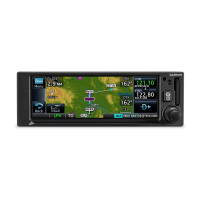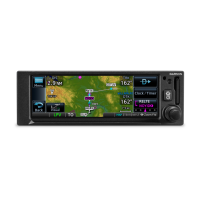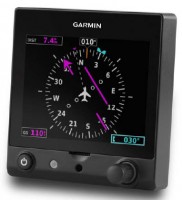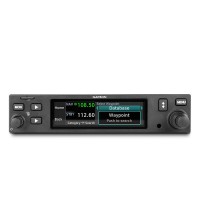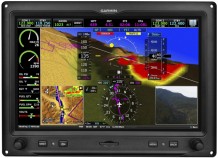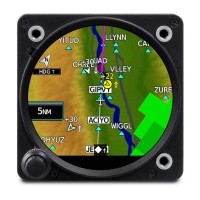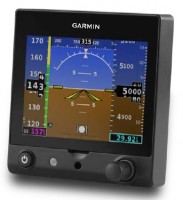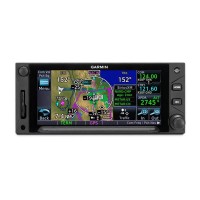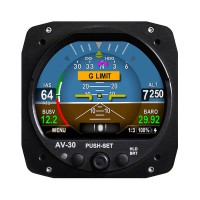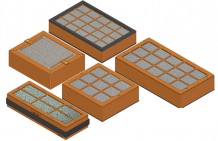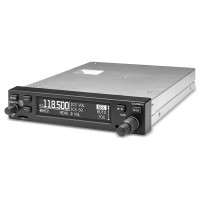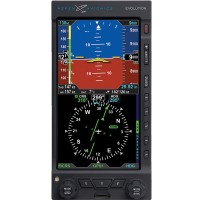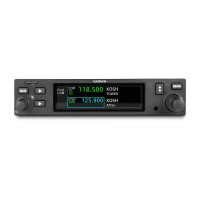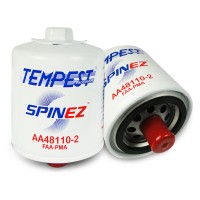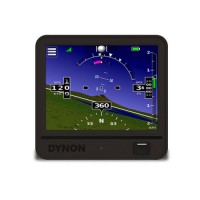Garmin GTN 725Xi GPS / MFD System With Harness For Experimental Aircraft
Overview
|
Note: Per Garmin, even though this product is certified, we can only sell over the counter to experimental aircraft (must verify) with wire harness. For certified aircraft, you will have to fly to a Garmin install dealer. With its 6.9-in. (diagonal) display, intuitive touchscreen interface and wide range of multifunction display capabilities, the GTN 725 is so much more than just a GPS navigator. The 6-in.-tall system puts high-resolution terrain mapping, graphical flight planning, charting, traffic display, satellite weather and much more right at your fingertips. Touch and GoWith the GTN 725’s revolutionary new touchscreen interface, you’re rarely more than two taps away from all of the system’s primary functions. Quickly pan across the map screen simply by swiping your finger across the high-resolution TFT display. Or enter waypoint data with the full onscreen keypad. It’s even designed with raised grips in the bezel and a shelf across the lower edge of the display that serve as gripping points in both smooth and turbulent flight conditions. Traditional concentric knobs are also available for those who are used to that style of data input. Navigate with EaseThe GTN family makes it easier than ever to get where you’re going. Graphical flight planning capabilities allow you to edit your entire route on the map screen and easily enter new waypoints or modify existing ones. The system even lets you load Victor and jet airways. A handy "rubber band" feature lets you grab any leg of your flight plan route and move it to accommodate a deviation or ATC amendment to your flight plan. The GTN 725 also allows you to enter your most recently visited or nearest airports as waypoints or “Direct-To” destinations. Built-in Garmin U.S. FliteCharts™ or optional Jeppesen®-style geo-referenced ChartView™, provides you with approach plates and procedures, while Garmin SafeTaxi® lets you see geo-referenced runways, taxiways, FBOs and hangars. Execute Precision ApproachesThe GTN 725’s robust 15-channel GPS receiver generates five position updates per second. This SBAS/WAAS-certified technology allows you to fly GPS-guided LPV glidepath instrument approaches down to as low as 200 ft. In addition, precise course deviation and roll steering outputs can be coupled to select autopilots so that IFR flight procedures may be flown automatically. This includes all ARINC 424 leg types, except RF legs. (For example, when coupled with a G500/G600 Flight Display, the aircraft can fly fully coupled missed approaches, including heading legs.) See More than Ever BeforePacked full of multifunction display capabilities, the GTN 725 brings enhanced situational awareness to your cockpit. With high-resolution terrain mapping – including topography features, cities, airports, terminal areas, SUAs and more – and optional Class B TAWS alerting, you’ll find your way around the airspace safely and with ease. Couple the system with a GDL™ 69 series datalink receiver and XM® subscriptions, you can overlay NEXRAD radar right onto your moving map display and receive satellite music. Or add a Garmin traffic system and pinpoint other aircraft in your vicinity. The GTN 725 can even control the GMA 35 remote audio panel with clearance recorder, advanced auto squelch and more. Use the GMA 35 and a GTX™ 32/33 remote transponder to save up to 3 in. of panel space versus a typical GNS 430/530 install. Stay Up to DateThe GTN 725 features a front-loading SD™ card reader, so you can easily update your databases. Manage your databases directly through the manufacturer's website and purchase affordable updates as soon as they’re available. |
Features
- Menu-driven graphical interface on color LCD touchscreen display
- Feature-rich MFD capabilities: moving map, chart display, airways, approaches and more
- GPS TSO’d to C146c, authorized for Class 1,2,3 (LPV)
- GPS WAAS-certified to Gamma-3 approach capability
- WAAS-corrected GPS signal accuracy to 1 M RMS
- Graphical flight planning (including airway navigation)
- Extensive optional interface capabilities: lightning, weather, traffic, TAWS-B terrain alerting, and more
- Integrated control/display for remote transponder
- Flight control system interface for select autopilots
- Integrated control for remote audio panel functions
- Optional XM® WX satellite weather and XM Radio
- SafeTaxi® airport diagrams
- Award-winning Garmin product support and 2-year warranty
In the Box
- GTN 725xi
Specifications
- TSO applicability: C74d Class A; C112e; C146e Class 3; C151d Class A, B; C157b Class 1, 2; 165b; C194; C195b Class B1, B3, B5, B7; C209
- Display size: 6.9" (175.3 mm) diagonal
- Display resolution: 834 pixels (W) x 986 pixels (H)
- Unit bezel height: 6.00" (152.0 mm)
- Unit bezel width: 6.25" (159.0 mm)
- Unit depth with connectors: 11.25" (286 mm) (measured from face of aircraft panel to rear of connector backshells)
- Unit weight: 5.7 lbs (2.60 kg)
- Input voltage range: 11 VDC - 33 VDC
- Operating temperature range: -20° C to 55° C (-4° F to 131° F)
- Number of GPS channels: 15 (12 GPS and 3 GPS/WAAS/SBAS)
- LAT/LON position accuracy: <1.25 meter RMS horizontal, < 2 meter vertical, with WAAS
- Maximum velocity: 1,166 knots
- Position update Interval: 0.2 sec (5 Hz)
Q&A
Please note, Aircraft Spruce's personnel are not certified aircraft mechanics and can only provide general support and ideas, which should not be relied upon or implemented in lieu of consulting an A&P or other qualified technician. Aircraft Spruce assumes no responsibility or liability for any issue or problem which may arise from any repair, modification or other work done from this knowledge base. Any product eligibility information provided here is based on general application guides and we recommend always referring to your specific aircraft parts manual, the parts manufacturer or consulting with a qualified mechanic.


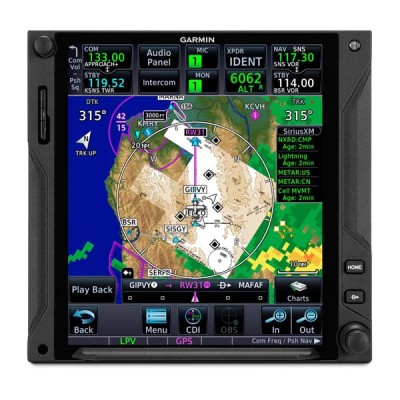
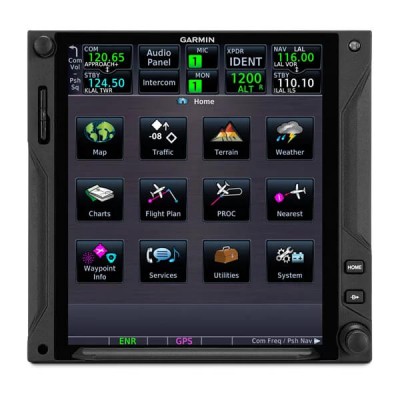
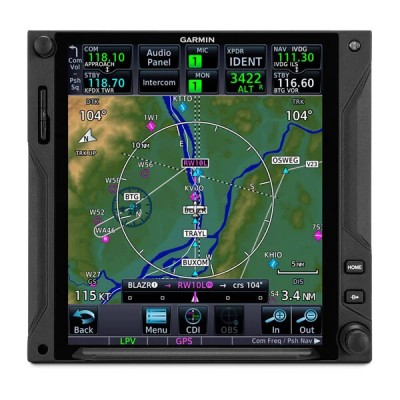
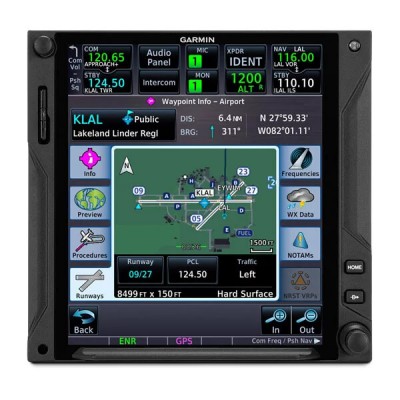
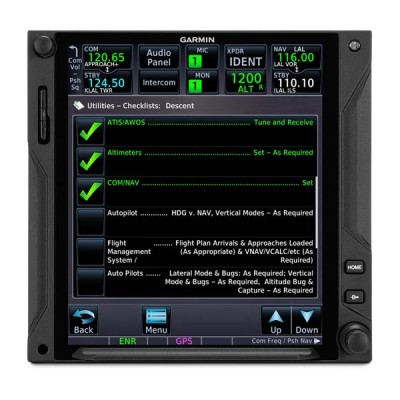










 FREE Shipping
FREE Shipping
